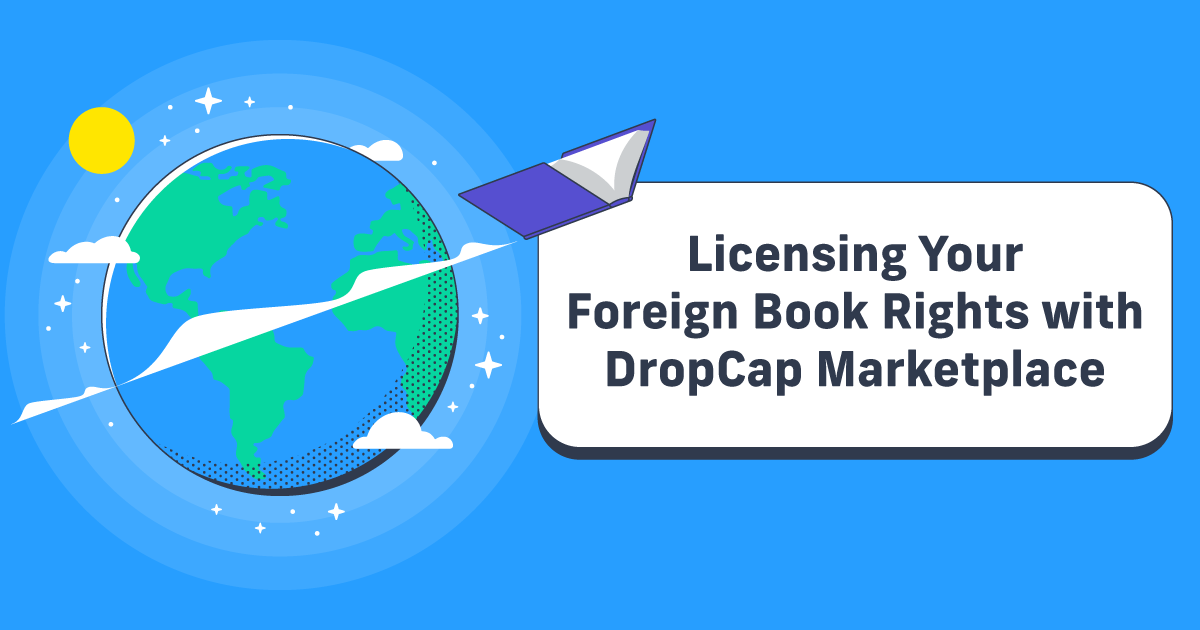5 Tax Tips for Authors: A Tax Guide for Independent Creators
Okay, with that out of the way, I’m going to provide some best practices to make certain you’ve paid the proper taxes. You should also refer to Lulu’s Help Center for more information about completing tax requirements such as your supplying a W-9 or W-8 form.
Understanding taxes is critical for any business. And if you’re creating content and selling books, you’re a business. As content creators, it’s tempting to focus just on your creative endeavors, overlooking the business aspects. However, if you neglect to understand how taxes for authors and writers work, you risk hurting your bottom line.
When Your Writing Becomes Your Business
When you earn revenue from your writing, you’re not just a writer—you’re a business owner. Whether you’re a freelance writer or a self-published author, your writing becomes a business when you start earning income.
And that’s a great thing! But it also means you need to think about things like taxable income, business expenses, tax deductions, and adjusted gross income (among numerous other business-related buzzwords).
If you’re selling your books through a platform like the Lulu Bookstore or our Global Distribution service, you’ll get your necessary tax forms from Lulu. The same is true for other legitimate self-publishing platforms and retailers.
Please note that I won’t address authors who are paid to write by selling their content to a publisher. This is the ‘traditional’ publishing model and comes with its own complications and intricacies.

Your Free Lulu Account
Create a Lulu Account today to print and publish your book for readers all around the world
5 Tax Tips for Creators
Paying taxes for self-published authors is important and tax law can be complex. These five tips will help you stay organized and prepared for tax time.
- Track Your Book Sales
- Use the Correct Forms
- Know When You’ll Owe Self-Employment Tax
- Make Smart Business Deductions
- Remember State, Local, and International Taxes
1. Track Your Book Sales and Income
Accounting might not be the most fun or engaging part of your creative endeavors, but it’s absolutely necessary. We’ll look more at receipts and expenses, but one of the most important things to track is your sales and income.
If you sell your book on the Lulu Bookstore or through our Global Distribution service, you’ll see your book sales right in your Lulu Dashboard. If you’re using Lulu Direct for Shopify, Wix, or WooCommerce, you’ll get tax information from a couple of sources.
Lulu Direct and Shopify Tax Info
Lulu Direct connects your Shopify store to Lulu’s printing network. All sales and revenue information can be found on Shopify’s Orders page. This is taxable income you’ll need to track.
On the Lulu Direct Dashboard, you’ll find a page with order information, including the printing and shipping costs. These can be business expenses that you’ll want to report when preparing your taxes.
Lulu Direct and WooCommerce Tax Info
Connecting Lulu Direct to WooCommerce does not require an app and is done directly through your Lulu Direct dashboard. You’ll find your book sales in your WordPress Admin panel, including the sales and revenue information you’ll need for your tax forms.
Information about orders placed, including print and shipping costs, can be found in your Lulu Direct Dashboard. This data is important when determining your business expenses and may need to be reported when preparing your taxes.
While neither Lulu nor your ecommerce service will do your taxes for you, we will prepare some of the necessary forms you’ll need based on your sales. But you should keep your own records of sales and income. And, as I mentioned in the disclaimer, you should always seek the advice of tax professionals if you’re unsure.
This is particularly important for direct sales—you’ll be the only one with complete access to your income (the revenue you earn from a sale) and your expenses (what you pay for printing and fulfilling books).
2. Report Income From Writing With the Correct Forms
As a writer, you will receive a 1099 form from any company that paid you more than $600 in a calendar year. This form reports your adjusted gross income and earnings to the Internal Revenue Service (IRS). The income from any 1099 forms you receive must be reported using Schedule C, Profit or Loss from Business, as part of your annual tax return.
If you’re using Lulu to sell your books and you were paid at least $10 in royalties, we’ll provide form 1099 (or form 1042, depending on your residence) for you. If you use Lulu Direct or Lulu’s Print API, you can find specific information for the ecommerce provider you’re using here:
If you’re a sole proprietor, Schedule C is where you’ll report your writing income and expenses. If your net earnings from writing are $400 or more, you’ll also need to file Schedule SE for self-employment tax.
A Federal Employer Identification Number (FEIN) may also be necessary if you set up your writing business as an entity other than a sole proprietorship.

Create Your Book
Use Lulu's free templates to easily create and publish your book today.
3. Understand When You’ll Pay Self-Employment Tax
As a writer, your taxable income will likely come from more than just book sales. Speaking fees, paid courses, and any other products or services you sell will contribute to your adjusted gross income. This is the amount you earned that is used when calculating your income tax.
You must file Schedule SE, Self-Employment Taxes if you are self-employed and earned a profit from your business. Self-employment taxes for writers include Social Security and Medicare tax. At the time of writing this post (July 2023), the Social Security tax rate is 12.4% on up to $160,200 of your net earnings and the Medicare tax rate is 2.9% on your entire net earnings.
That’s the adjusted gross income you earned as a content creator, less any tax deductions for business expenses.
The self-employment taxes for content creators are separate from federal income taxes. You’ll pay both for each tax year, either through estimated tax payments during the year or by withholding from other sources of income.
4. Business Expenses and Tax Deductions For Writers
Just like any other business large or small, you can deduct expenses related to your writing business. Things like office supplies, travel expenses related to your writing, costs for editing, page layout, or cover design, and there’s even a home office deduction if your writing business is based out of your home.
Keep receipts for any expenses related to your writing business. Period. Keep your receipts. These receipts are crucial for proving your business expenses if the IRS ever questions your tax return.
To claim these deductions, you’ll need to itemize all deductions on Schedule A of your tax return. Note that you won’t take the standard deduction most of us use for tax filing.
Insurance Deductions
If your primary source of income is your writing job, you’ll likely need to purchase health insurance directly from a provider or through the Affordable Care Act’s marketplace.
Purchasing health insurance in this way may allow you to deduct some of your health care premiums through form 8941. Be careful to review your filing status and ensure you’re eligible for this cost-saving deduction.
5. Remember State and Local Taxes
Don’t forget about local taxes! As a small business owner, you may be subject to state and local taxes in addition to federal taxes. These can include income taxes, sales taxes on items you sell, and property taxes on business property.
International Sales and Sales Taxes
Selling your books, services, and other products online means people from all over the world can purchase from you. That’s a terrific way to reach a broader audience, but it also means you’ll be selling to people living under different tax codes.
Refer to the IRS website for more information about selling internationally.
Managing Your Content Business
Understanding how much you’ll owe and how the various taxes for creators impact you is about more than just paying the IRS. There are advantages available to small business owners and self-employed individuals through smart deductions and business management. Keep good records and thoroughly learn the tax rules that apply to your writing business and you’ll avoid paying more than you need to each year.
As a professional writer, you’re not just creating content—you’re running a business. And with the right knowledge and preparation, tax time doesn’t have to be a source of stress.
Please remember that this guide is meant to help clarify key aspects of your tax burden. You should always consult with a tax professional or the IRS for advice specific to your business. Every creator’s business and situation is unique; what works for you may not work for another writer.
The best solution is always to arm yourself with knowledge and seek professional assistance whenever you’re in doubt.




